Two experienced hikers were rescued from the tallest mountain in the Northeast after a whiteout snowstorm stranded them at about 5,000 feet on Sunday, authorities said.
Kathyrn McKee, 51, of Southborough, Massachusetts, and Beata LeLacheur, 54, of Westborough, Massachusetts, were trekking through a challenging Mount Washington trail in New Hampshire when the weather turned severe, the New Hampshire Fish and Game Department (NHFG) said.
Temperatures dropped and winds kicked up, blowing snow so that the trail the friends were following was completely erased. The pair pushed through chest-deep snow, lost on the mountain.
One of McKee’s snowshoes became stuck in a “spruce trap,” a hole created in the snow underneath trees.
UTAH SNOWMOBILER KILLED IN AVALANCHE AFTER BEING ‘FULLY BURIED’
In this photograph provided by Kathyrn McKee, fellow hiker Beata LeLacheur climbs the Westside trail, just hours before needing to be rescued, on Mount Washington, New Hampshire, on Sunday, Feb. 2, 2025. (Kathyrn McKee photo via AP)
“It took like 20 minutes to get out of that,” she recalled to The Associated Press in an interview. “And that kept happening. And so we got to a point where we were literally, like crawling on our bellies to try to get to the next point and just struggling so much that it wasn’t working.”
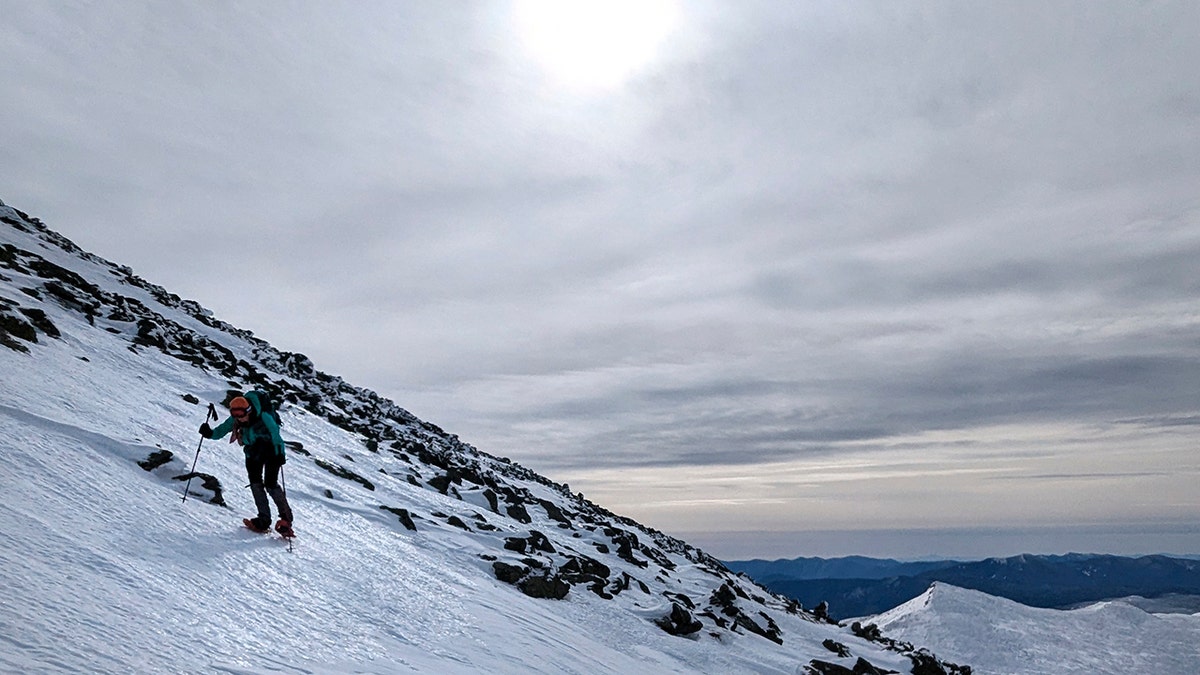
Hiker Beata LeLacheur is shown just hours before needing to be rescued, on Mount Washington, New Hampshire, on Sunday, Feb. 2, 2025. (Kathyrn McKee photo via AP)
After about an hour of struggling, the hikers called 911 shortly after 6 p.m. and reached NHFG conservation officers, who plotted their GPS coordinates and directed them toward the trail — just 34 feet away.
“They ended up on the trail several times but could not follow it because it had been erased by wind and blowing snow,” Sgt. Matthew Holmes of the Fish and Game Department said in a news release.
MISSING NORTH CAROLINA HIKER, 73, FOUND DEAD IN GREAT SMOKY MOUNTAINS NATIONAL PARK
Unable to find the trail after multiple calls with conservation officers, Holmes said “the pair huddled up in the snow to keep warm and awaited assistance.”
Temperatures at the summit fell to -2 degrees and sustained winds blasted at 50-60 mph, often with gusts significantly higher, by the time the agency began a rescue operation at 8:30 p.m., Holmes said.
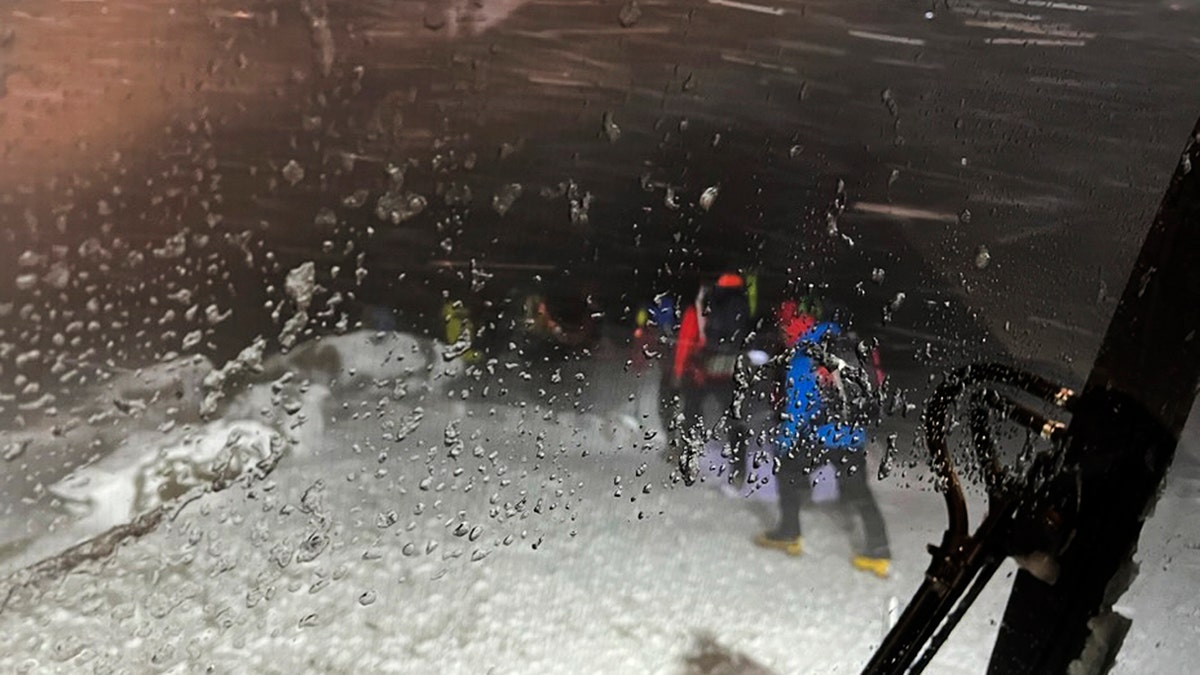
This image provided by the New Hampshire Fish and Game Department shows rescuers leaving on foot from the summit on Mount Washington, New Hampshire, on Sunday, Feb. 2, 2025. (New Hampshire Fish and Game Department photo via AP)
McKee said that despite wearing gloves with liners, her “hands were frozen.” The friends used a bag as a wind guard and sat on the mountain for the next six hours to await rescue as the wind blasted them and buried them underneath snow that left them insulated but immobile, she said.
“I was terrified that my friend may pass away in front of me and, you know, or I might pass away,” McKee said. “And how did we get here? So, you do think about that, but you can’t stay in that thought process because that’s not going to get you out. So we just kept focusing on what is the next thing we can do.”
Just before midnight, nine rescuers on a Mount Washington State Park snowcat reached the summit. The crew snowshoed across the deep, wind-blown snow toward the trail, officials said.
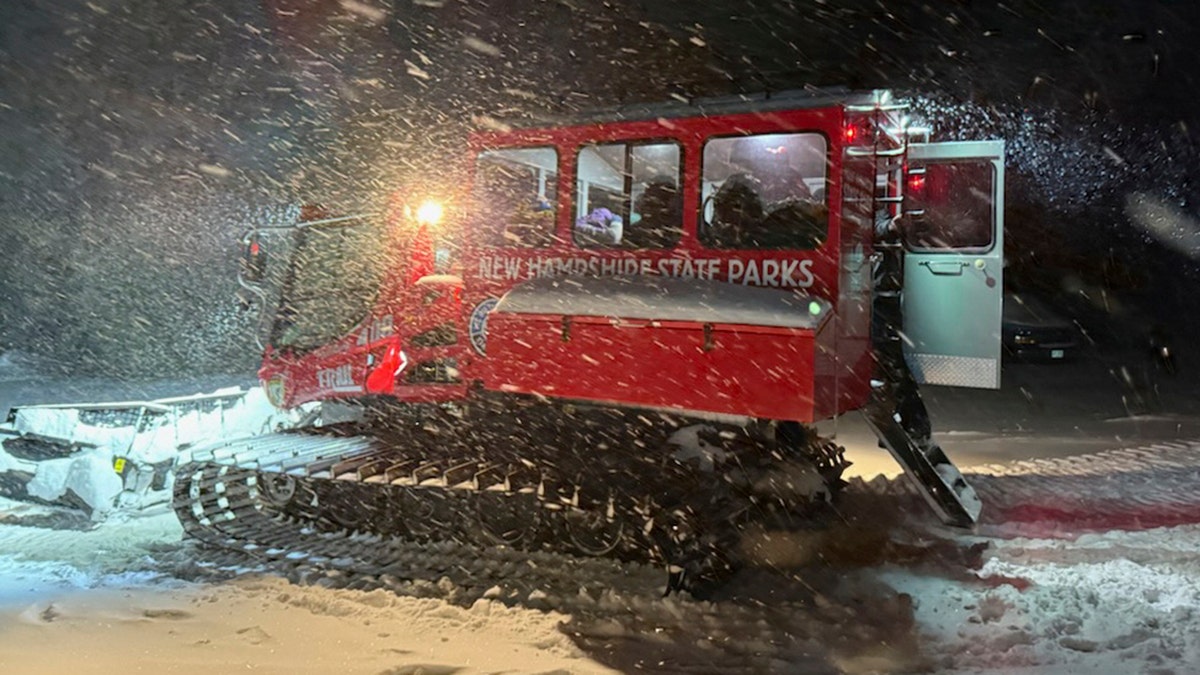
This image provided by the New Hampshire Fish and Game Department shows a snowcat heading out on the rescue mission on Mount Washington, N.H., on Sunday, Feb. 2, 2025. (New Hampshire Fish and Game Department photo via AP)
The team approached the last known location of the two hikers at 1:20 a.m. Monday, but had not yet made contact.
“The only way to locate the trail was through GPS navigation, and progress was slow due to the tremendous effort required to break a trail in the deep snow,” Holmes said.
VETERAN SKIER FOUND BURIED IN AVALANCHE ON DESOLATE TRAIL BY WIFE USING TRANSCEIVER
A half hour later, the rescuers found the two hikers alive and coherent, though both were suffering from cold weather injuries. The rescue crew set up emergency shelters and began to warm both hikers, who were able to move on their own after about an hour, officials said.
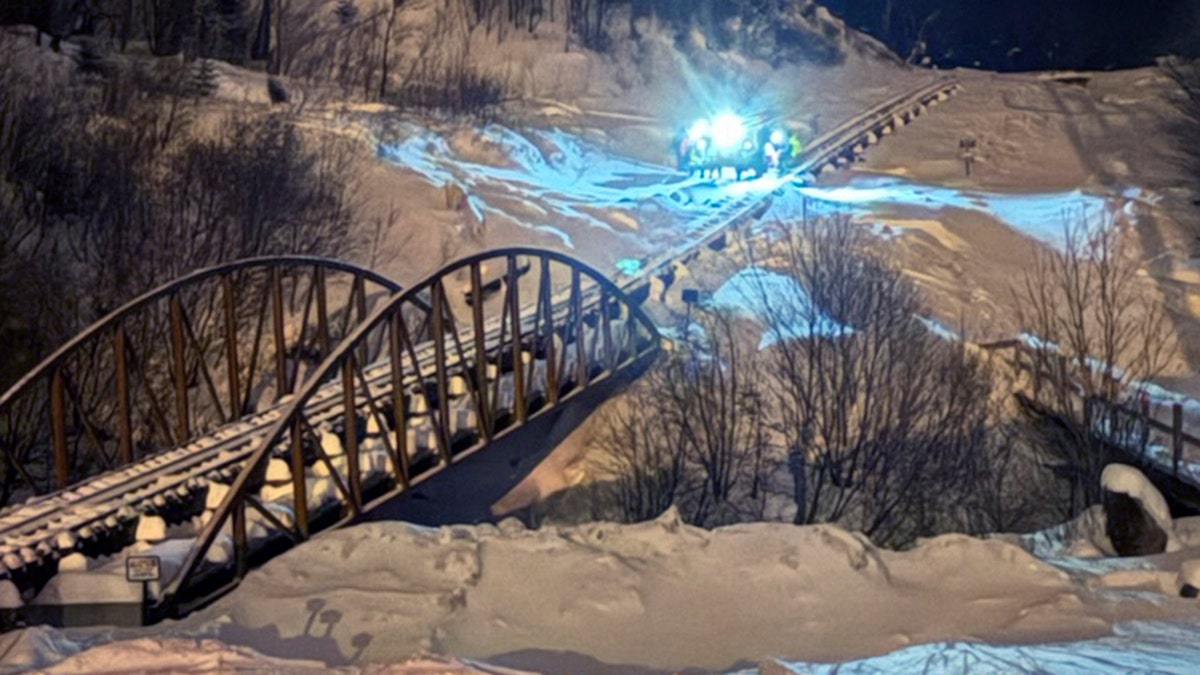
This image provided by the New Hampshire Fish and Game Department shows rescue hikers along the cog railway during a rescue mission on Mount Washington, N.H., Sunday, Feb. 2, 2025. (New Hampshire Fish and Game Department photo via AP)
At 3 a.m., the rescuers and hikers made their way down the Jewell Trail toward the base station of the Cog Railway, reaching the base safely by 4:15 a.m.
Mount Washington is the tallest peak in the Northeast at 6,288 feet, and is known for its extreme weather conditions.
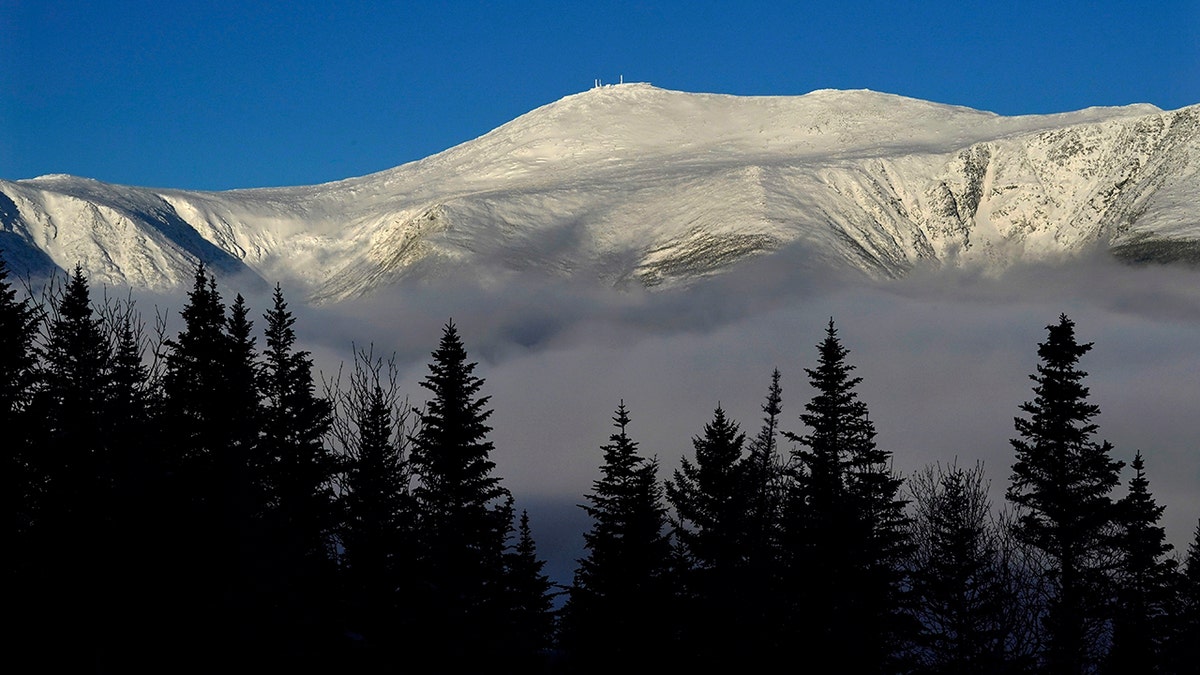
The summit of New Hampshire’s Mount Washington. (AP Photo/Robert F. Bukaty, File)
Holmes said both women were prepared for a winter hike, had emergency gear and had winter hiking experience. But they didn’t expect they would lose the trial. McKee and LeLacheur had received training on hikes from the Appalachian Mountain Club’s chapter in Worcester, Massachusetts.
“We feel really awful about having to make that (911) call, but it did save our lives, and we’re eternally grateful,” McKee said of their rescuers.
Both told The Associated Press they’d go out hiking again in the White Mountains and add a small pop-up tent to their gear in case they need to seek shelter.
“You either get back on the horse, or you don’t,” McKee said. “I’m not going to have a problem to get back on the horse. I’m going to do it as safe as I can. But I recognize there are risks in what we do.”
The Associated Press contributed to this report.


